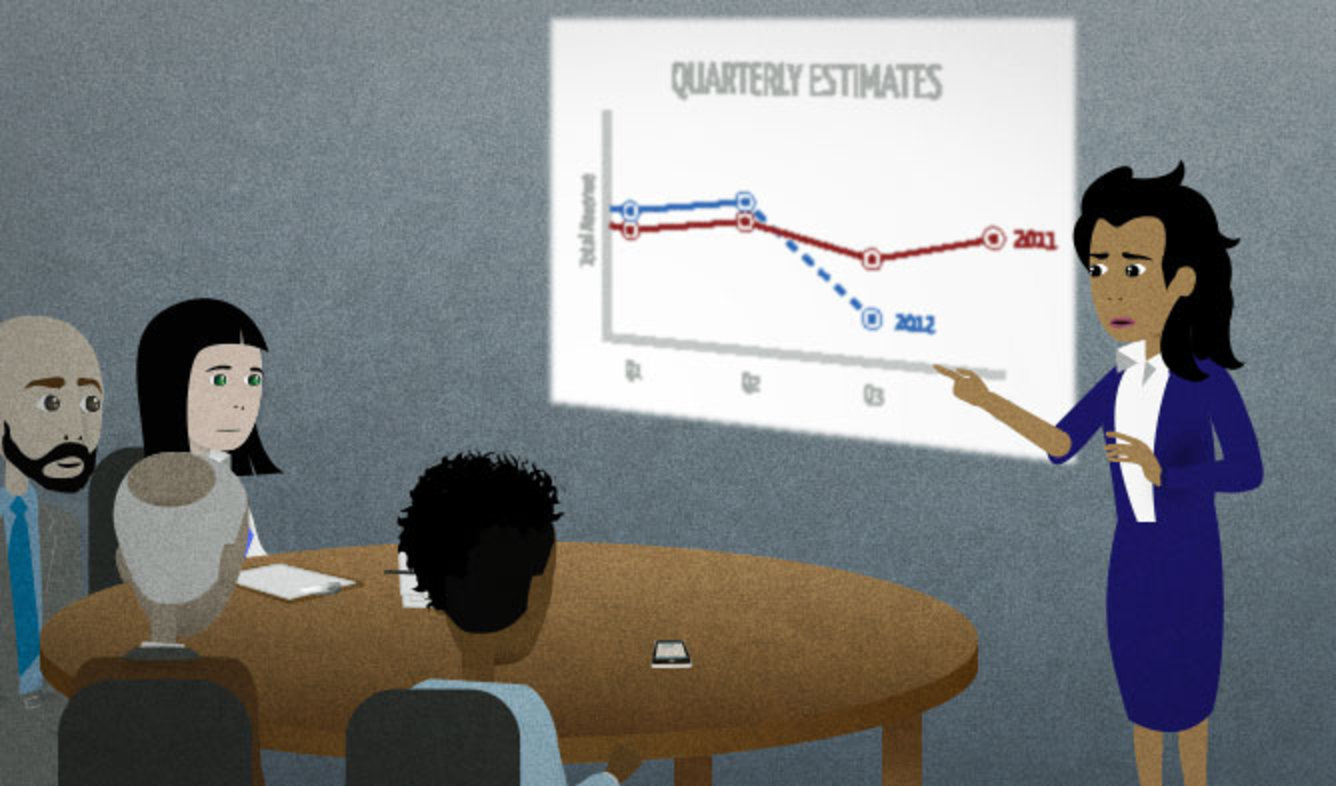“We expect sales this quarter to be a little soft compared to last year, due to the overall economic environment.”
You're giving a presentation at work about your company's financial estimates. Your group expects that the company won't make as much money as they did in the same period last year.
We expect sales this quarter to be a little soft compared to last year, due to the overall economic environment.
Want Video and Sound? Follow us on YouTube

a quarter
Businesses usually break the year up into four pieces, which are called "quarters". They measure the performance of the business by how well each quarter compares to the same quarter the last year.
You name the quarters like this:
The fourth quarter is always tough.
People also call them "Q1", "Q2", etc.
It's time to start looking ahead to Q3.
due to (something)
"Due to ___" explains expresses the cause of something.
You use "due to" in slightly formal situations. For example, an announcement on a train might include "due to ___":
Due to construction, the uptown 1 train will not be stopping at 50th Street, 59th, or 63rd. The next stop is 72nd Street.
The thing that follows "due to ___" should be a noun. As another example, if something happened because it's raining, you don't say "due to it's raining". You have to use a noun:
The game has been postponed due to rain.
If you want to say that the reason for something was an action, you have to find a way to make that action into a noun. For example:
The project was a failure due to lack of communication between team members.
The action in this sentence is "team members didn't communicate". But to put it in noun form, you say "lack of communication. You could also say:
The project was a failure due to team members not communicating.
In this example, "team members not communicating" acts as a noun.
"Due to" can fit into a sentence two different ways:
- (something) is due to (something)
- (something happens) due to (something)
We expect (something) to (be / do something)
You can use this expression to announce what you think is going to happen, in a formal way.
We expect sales to receive a further boost in the second half of 2012.
We expect the feds to help keep interest rates low through the end of the year.
Sentences like this are common in documents like financial reports.
(something) is (adjective) compared to (a different time)
You can compare something at two different points in time this way:
It's pretty quiet compared to last year's event.
The competition at the 2012 Olympics was a bit weak compared to the 2008 Games.
You can also compare two different things in a similar way:
Windows computers have a reputation for being quite virus-prone compared to Macs.
sales are soft
When a company or an industry is not selling as much as usual, you can describe it by saying that "sales are soft".
Other expressions to describe this situation include:
Sales are down.
Sales are weak.
Compared to these other expression, "sales are soft" sounds a little more positive and optimistic.
economic environment
The "economic environment" means the situation that the economy is in. It includes:
- How many people have jobs
- How much money businesses are making
- How well the stock market is doing
The "economic environment" is very similar to the "economic climate", although "economic environment" sounds a little more positive.
